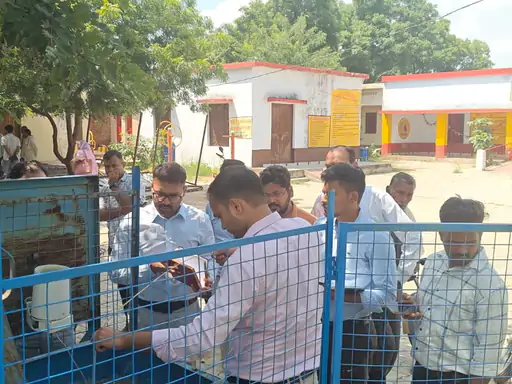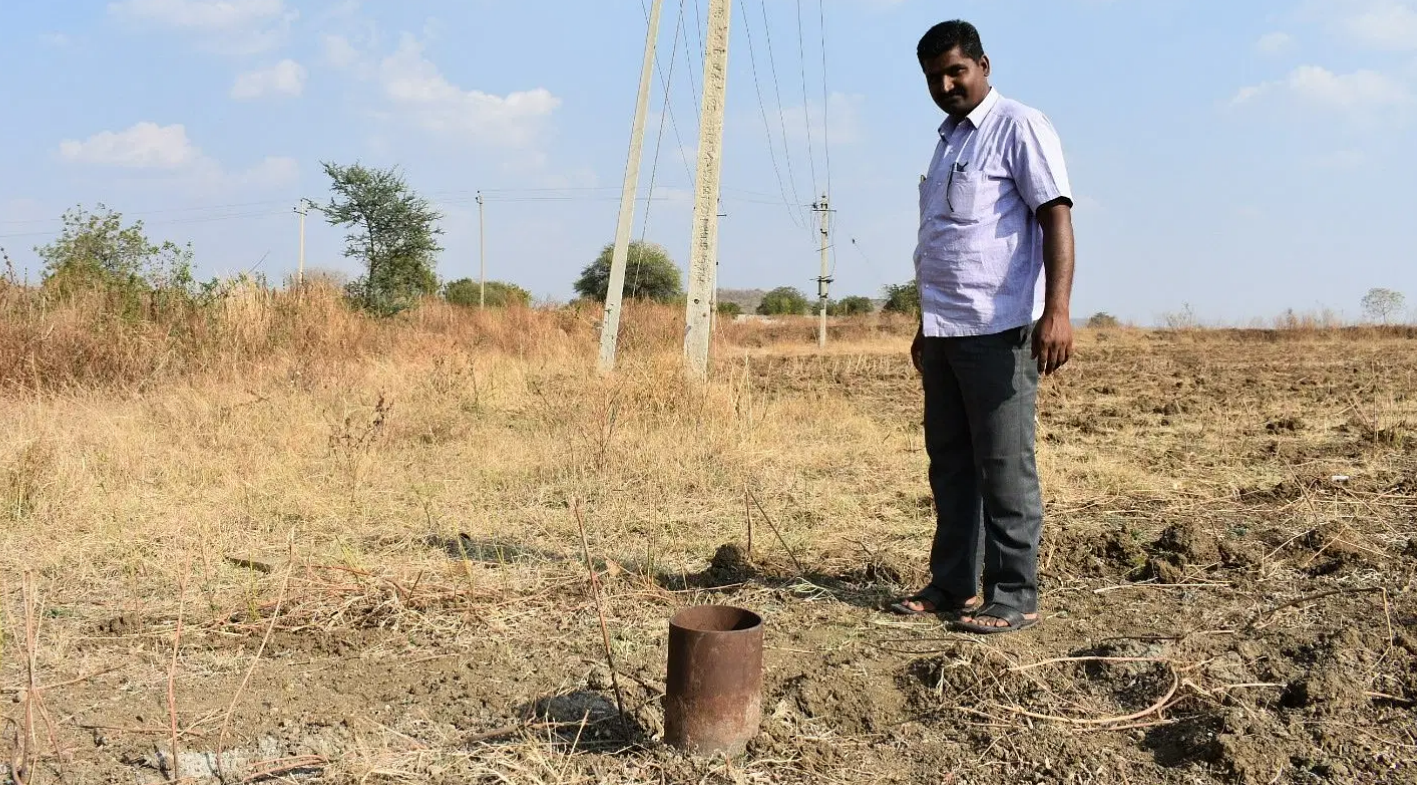Scientists Raise Alarm as Rural Water Supply Goes from Depths to Debt
Photo credit: Lakshmikantha N R
A research paper titled ‘Chasing the Water Table: The Impact of Groundwater Depletion on Rural Drinking Water Supply in Peninsular India’ by Veena Srinivasan, Lakshmikantha NR, Manjunatha G, and Ganesh Shinde highlights issues in current water management practices.
The city of Bengaluru and its surrounding peri-urban areas have been grappling with severe groundwater depletion, driven primarily by over-extraction. Yet, even as water sources are running dry, administrative focus remains largely on technical and financial fixes— laying pipelines, ensuring capital investment—rather than on effective water resource management. This has led to the near-complete neglect of efforts to sustainably manage water sources.
A new research paper published in PLOS Water turns attention to these on-the-ground realities, raising critical questions: What is the actual extent of groundwater depletion and how is it impacting rural water supply systems? What are the primary drivers of this depletion? And what are the additional financial burdens involved in finding new sources for water supply?
In this article for Mongabay, Arathi Menon writes about how the researchers analysed long-term data from two gram panchayats, Aralumallige and Doddathumakuru, in the upper Arkavathy watershed near Bengaluru. Their findings confirm that groundwater depletion in this hard rock aquifer region is a severe and growing concern, driven largely by agricultural water abstraction. Notably, the study addresses a common misconception, highlighting that domestic use accounts for just 10% of freshwater consumption, while agriculture uses around 70%, and industrial and commercial uses account for about 20%.
Acknowledgements
Arathi Menon for Mongabay India
Follow us to stay updated about our work


